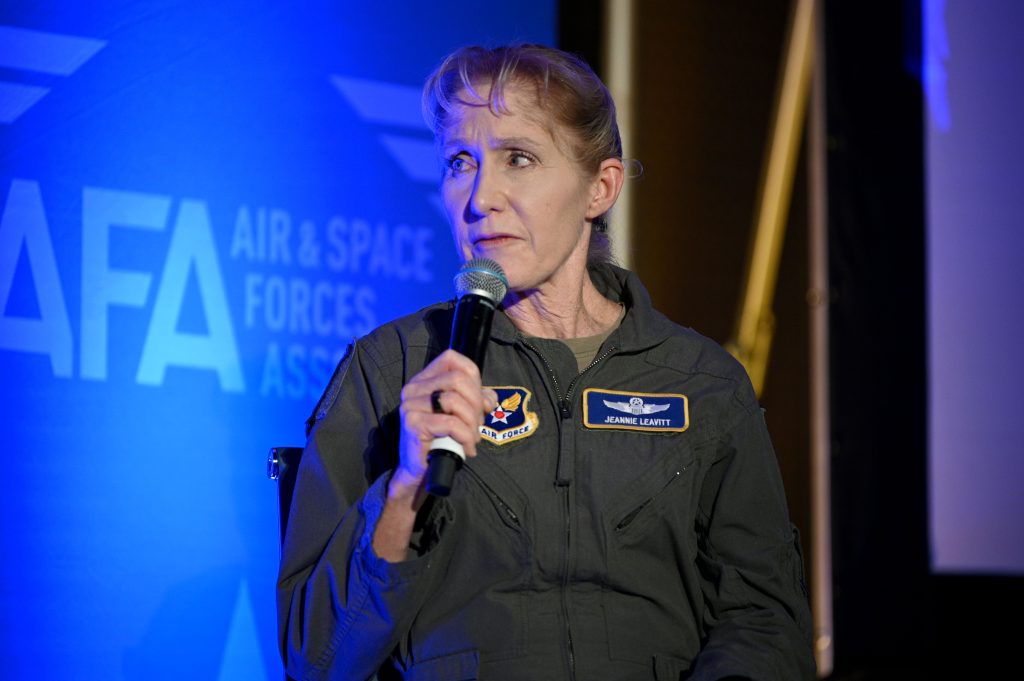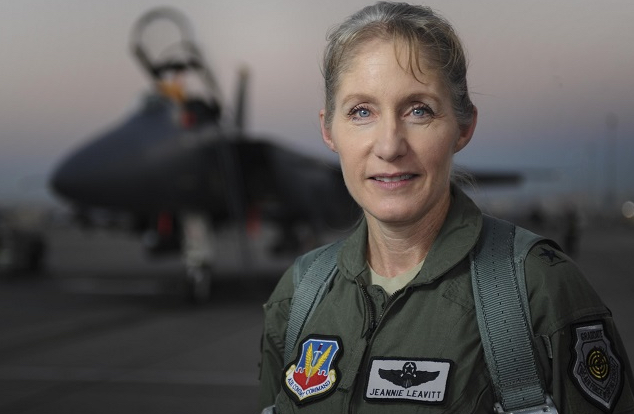An Air Force trailblazer’s career came to a close this weekend, as Maj. Gen. Jeannie M. Leavitt, the service’s first female fighter pilot, retired after 31 years in uniform.
The retirement ceremony for Leavitt took place at Scott Air Base, Ill., on Sept. 23. U.S. Transportation Command boss Gen. Jacqueline D. Van Ovost—one of only three women to ever lead a combatant command—officiated and reminded all in attendance of the legacy Leavitt has crafted.
“[Jeannie] had to cope with a constant demand to be in the spotlight, because of her many firsts, something that’s not representative of who Jeannie is,” Van Ovost said. “She much prefers to stand back, behind the scenes to guide and mentor. To take care of the people and the mission—[that’s] the true purpose behind her continued dedication to service.”
Leavitt’s Air Force journey was indeed marked by numerous “firsts,” challenging preconceived notions about the roles women could play in the military. She was the first woman to enter Air Force pilot training for fighters in 1993. Later, she made history as the Air Force’s first female fighter pilot. She was also the first woman to command a combat fighter wing, the 57th Wing at Nellis Air Force Base, Nev.

Throughout her career, she accumulated over 3,000 flight hours, including operational missions like Southern Watch, Northern Watch, Iraqi Freedom, and Enduring Freedom. Most of her experience was in the F-15E Strike Eagle.
Van Ovost reflected on the hurdles women encountered in combat roles during the early 1990s, noting that simply altering policies wasn’t enough. Gaining acceptance and recognition were separate struggles, she added, and Leavitt played a pivotal role during a time of a significant change, breaking barriers that had long kept women out of combat fighter pilot roles.
Throughout her career, Leavitt was a strong advocate for women in aviation and encouraged young women to pursue careers in the Air Force and aviation—four such pilots appeared in a video tribute during the ceremony.
Her commitment to challenge stereotypes went beyond the military, as she collaborated with Disney on the ‘Captain Marvel’ film to narrate her Air Force journey and share a more accurate portrayal of a lifetime dedicated to service. Yet Leavitt’s aspirations were never solely about personal achievement, Van Ovost said.
“On behalf of all of those who journeyed beside and behind you, thank you for having the courageous character necessary to pave new roads for others to follow,” said Van Ovost.
Leavitt’s final assignment was as head of the Air Force Safety Center, overseeing the entire Department of the Air Force’s aviation, occupational, weapons, space and system mishap prevention and nuclear surety programs and policy.
